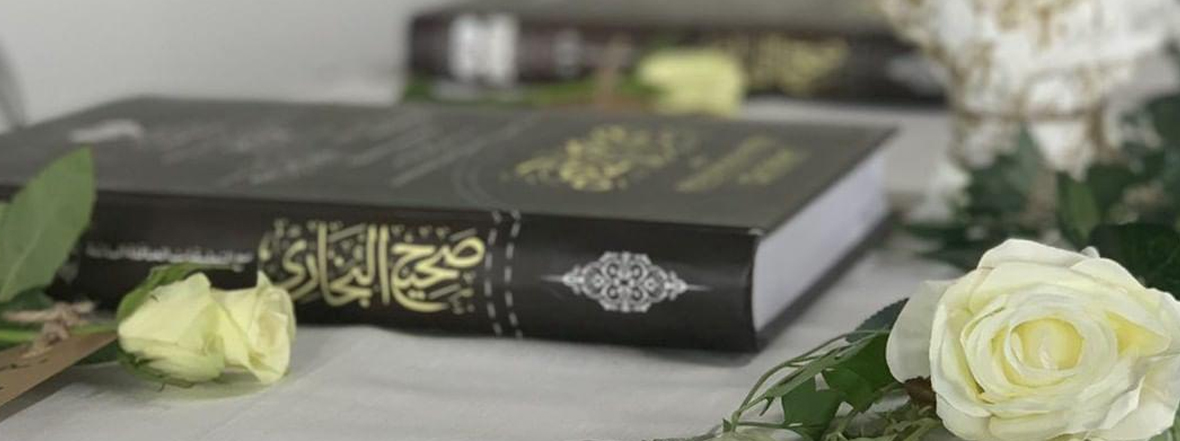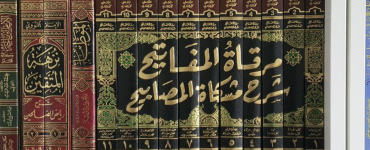بسم الله الرحمن الرحيم
Overview
Ṣuwar min Ḥayāt at-Tābiʿīn, authored by Shaykh ʿAbd ar-Raḥmān al-Bāshā (raḥimahullāh) includes varied anecdotes from the life of 30 tabiʿūn, many of whom have been portrayed in voluminous compilations. Below are some motivational excerpts from the lives of several remarkably outstanding tabiʿūn from whose lives we can take lessons:
EXCERPTS
ʿAṭā ibn Abī Rabāḥ (raḥimahullāh)
Fulfilling ḥuqūq Allāh and ḥuqūq al-ʿibād
A slave to a Makkan woman, he fulfilled the rights of Allāh Taʿālā and the creation by dividing his time into 3 parts:
- A portion to serve the needs of his masteress.
- A portion for his Creator, in which he would engage in worship.
- A portion for seeking ʿilm, in which he would turn to those left from the companions of Rasūlullāh (ṣal Allāhu ʿalayhī wa-sallam).
ʿĀmir ibn ʿAbdillāh (raḥimahullāh)
Importance of maintaining a schedule throughout your life
ʿĀmir ibn ʿAbdillāh stayed in the company of Abū Mūsā al-Ashʿarī and gained knowledge from him. Once he felt content, he divided his life into three parts:
- A portion for spending time in the circles of dhikr.
- A portion for spending time in solitude engaged in the remembrance of Allāh Taʿālā.
- A portion for fighting in the cause of Allāh.
Muḥammad ibn Sīrīn (raḥimahullāh)
He also divided his day, however, into two portions. A portion for seeking knowledge and worship and another for earning and business. From dawn until midday, he would stay occupied in the masjid of Basrah; teaching and advising. After that, he would busy himself in trade and earning his living. Finally, in the night, he would once again busy himself in worship.
{And he has appointed the night for resting…} [6:96]
ʿĀmir ibn ʿAbdillāh made three supplications, of which, two were accepted and one was rejected. He asked Allāh Taʿālā to drive away sleep from him i.e. make it possible for him to not sleep and continuously engage in gaining knowledge, but it was rejected. From this, we can understand the significance that lies in fulfilling the right that one’s body and soul have upon one by sleeping, even if it may be little.
Rabīʿah ar-Raʾy (raḥimahullāh)
ʿIlm and relaxedness cannot combine
He would tire himself throughout the nights and days until he was overcome by exhaustion. He was advised to be gentle towards himself, to which he said, “Knowledge will not give you some of it unless you give it your all.”
Ḥasan al-Baṣrī (raḥimahullāh)
Qualities of a Muslim and of a person of knowledge in particular
When Khālid ibn Ṣafwān was asked regarding the qualities of Ḥasan al-Baṣrī, he said:
- He was in privacy the way he was in public.
- His actions matched his words.
- When he advised something, he would be the one who acted upon it the most.
- When he admonished an act, he would be the furthest away from it.
- He was independent of others.
- The people would flock towards him, seeking that which was with him i.e. knowledge.
Working for the hereafter: the everlasting abode
He was asked to describe the dunyā, to which he answered, “You ask me regarding the dunyā and ākhirah! Surely, the example of the dunyā and ākhirah is like that of the east and the west. Once you have gained proximity to either one, you have distanced yourself from the other.”
He continued, “And you ask me to describe this worldly dwelling! It is not but a place the beginning of which is exhaustion and the ending is but utter destruction. There is reckoning in its lawful and punishment in its unlawful, whoever does without (keeps himself away from the world) will succeed, and whoever falls into it, has fallen into grief.”
ʿĀmir ibn Shurahbīl (raḥimahullāh)
Repaying evil with good
Through knowledge, he had embraced a lot of forbearance. He was once slapped very hard and cursed harshly to which he simply responded, “If you are correct due to which you have acted this way with me then may Allāh Taʿālā forgive me, and if you are wrong, then may Allāh Taʿālā forgive you.”
Humility
His level of humility (tawāḍuʿ) was such that he would feel embarrassed if he were ever addressed with the title of ‘ʿālim‘. He was once called ‘al-faqīh al-ʿālim’ (the jurist, the scholar) to which he proclaimed, “Wayhaq! Do not exceed in attributing us with what we are not. A faqīh is someone who is conscious of the lawful and unlawful stipulated by Allāh and an ʿālim is one who fears Allāh Taʿālā. How close are we to any of these?!
Rajāʾ ibn Haywah (raḥimahullāh)
Maintaining a reposeful attitude when preaching
Once he was present in the gathering of the Caliphate ʿAbd al-Malik ibn Marwān when the caliphate was being notified of someone who supported his rival and would help him. The caliphate, furious, intended on killing the man who supported his rival. It so happened that after a short while the caliphate saw the man and intended to harm him when Rajāʾ ibn Haywah stood up, went to the caliphate, and remarked, “O Amīr al-Muʾminīn, Allāh Taʿālā has made it possible for you to obtain what you like from power, so do for the sake of Allāh Taʿālā what He likes from forgiveness”. The caliphate become silent, cooled down, and forgave the man.
ʿUmar ibn ʿAbd al-ʿAzīz (raḥimahullāh)
Criticism is a Blessing: in which the khalīfah asked Ziyād al-Makhzūmī in distress: “Do you see that which ʿUmar is afflicted with?” And Ziyād wished him khayr but the khalīfah deemed this khayr far and cried relentlessly for he was granted a position in which he “could imprecate, or hit, or hurt anyone but nobody could do the same to” him.
Muḥammad ibn al-Ḥanafiyyah (raḥimahullāh)
Do not associate with trivial disputes amongst the Ummah: in which the son of ʿAlī (raḍī Allāhu ʿanh) refused to take an oath of allegiance with either of ʿAbd al-Malik ibn Marwān and ʿAbd Allāh ibn az-Zubayr until the Muslims agreed on one khalīfah. He feared the possibility of bayʿah obligating him to oppose another group of Muslims, merely over a dispute of leadership, in a repetition of the Battle of Ṣiffīn.
Ṭāwūs ibn Kaysān (raḥimahullāh)
Caution in setting an example as an influential individual: in which he wordlessly refused governor Muḥammad ibn Yūsuf’s expensive gift at a gathering, hence angering him. After leaving the gathering, Ṭāwūs’s companion asked, “Would it have hurt to accept the gift, then sell it and distribute the money amongst the poor?” Ṭāwūs responded, “You’re right, but I feared that scholars after me will accept because I did, then not give it to charity.”
- he believed duʿāt should take advantage of every opportunity to call towards Allāh, and that the best truth is said to guide a leader, prevent him from injustice, and bring him closer to Allāh.
- in which he turned away and refused to meet an ʿāmil who was known for challenging the truth and involving in falsehood. Seeing this, Ṭāwūs’s son greeted him and sought to excuse his father. Later, Ṭāwūs scolded his son for this saying, “Fool, you harshly condemn them in their absence yet approach them for conversation? Hypocrisy is precisely this!”
- in which he advised ʿAṭāʾ ibn Abī Rabāḥ (raḥimahullāh) against seeking help from he who keeps his doors shut and employs doormen. Rather, seek from He whose doors are always wide open for you, who urged you to ask and promised fulfillment.
Attribution to company: in which he advised his son, “Adopt intelligent company so you may be regarded as such although you are not. And avoid the ignorant to avoid being attributed to them. Everything has a purpose and the purpose of man is to fulfill his religion and better his manners.”
- in which he summarized the contents of the four divine books as: to fear Allah greater than anything else, to beseech him with a hope greater than fear, to desire for people what you would love for yourself.
Qāsim ibn Muḥammad (raḥimahullāh)
Upbringing: in which the grandson of Abū Bakr (raḍī Allāhu ʿanh) relates, “When my father was martyred in Egypt, my uncle ʿAbd ar-Raḥmān (raḍī Allāhu ʿanh) took my sister and I back to Madīnah. There, my aunt ʿĀʾishah (raḍī Allāhu ʿanhā) brought us up in her care. I’d never seen a mother or father more kind or compassionate than her. She’d feed us with her hands, and herself only eat if food remained after us. She’d bathe us, comb our hair, and dress us in white. She’d always advise and train us to do good and leave wrong. She was keen to teach us from the Qurʾān and Aḥādīth what we could understand. On Eids, she would hand us out gifts in abundance. On the evening of the 9th Dhul Ḥijjah, she would shave my head, bathe us, and in the morning, dress us in new clothes and send us for Eid prayers. When we’d return, she would gather us and perform the Qurbānī.
Ṣilah ibn Ashyam (raḥimahullāh)
- he was consistent with his worship routine, whether traveling or occupied or not. Once on the way to battle, he sacrificed a full night of rest for worship, yet to the onlooker, it would seem from his state that he was well-rested.
- advise kindly [1]: it is narrated that on his way to the jungle for solitude, he would often pass by a group of youngsters playing. Every time, after a warm greeting he would seek their opinion about a group that set out for an important journey but stop during the day for enjoyment and rest at night. Eventually, one of them realized that Ṣilah was indirectly advising them and rectified his ways by adopting the scholar’s company until the last breath.
- advise kindly [2]: in which he and his companions noticed a youngster had left his trousers below his ankles as do the arrogant. His companions considered harsh discipline but instead, Ṣilah approached him and said with the kindness of a father figure, “Son, I need something from you: that you raise your trousers; it is an act of cleanliness, fear of God, and a sunnah.” Ashamed, the youngster added, “and pleasant to the eye” and raised his trousers. Ṣilah said to his companions: “Such an approach is better. If you had hit or cursed him, he would’ve returned the favor but the trousers would’ve remained trailing the floor.”
- cut comfort to avoid sleep: in which is mentioned that his cousin — and eventually his wife — would opt for light clothing in winters too so the cold would prevent her from deep sleep and skipping worship.
Rāfiʿ ibn Mihrān (raḥimahullāh)
- in which he, at the time a slave, and others complained to the Companions of the difficulty in working during the day and completing a full Qurʾān every night. They were advised to complete a full recital every week instead.
- he would travel long distances to pray behind knowledgeable individuals. If he noticed their ṣalāh was not perfect, he would turn back, thinking: the one who is lenient with his ṣalāh is inevitably more carefree in other matters.
- in which he mentioned that purity is not acquired from filth with water, rather from sins with taqwa.
Al-Aḥnaf ibn Qays (raḥimahullāh)
- in which he referred a wise statement he heard from ʿUmar ibn al-Khaṭṭāb (raḍī Allāhu ʿanh): he who jokes is belittled; who increases in something is known by it; who talks much errs much, more errors less shame, as shame decreases so does the fear of Allāh until eventually, the heart dies.
- in which he mentioned that the person with religion, nobility, intelligence/wisdom, and shame will lead his people without opposition.
Abū Ḥanīfah al-Nuʿmān (raḥimahullāh)
- he would be recognized by his perfume.
- despite the generous stipends for scholars in that era, he considered self-earning the purer and more honorable approach, hence having a fixed time for his clothing business, which was very successful. At the end of the year, he would subtract an amount for personal expenses and purchase necessities for scholars and students with the rest. He would give each of them cash too saying, “This is not from my own wealth, rather Allāh has granted it to you through me; nobody has power regarding the rizq of Allāh except Him.”
- whenever he would spend on himself or his family, he would spend an equivalent amount on the needy.
- giving up habits: in which he promised himself, that if he ever took an oath by Allāh, he would give a gold dīnār in charity.
- explain: in which he approached a man known to accuse ʿUthmān (raḍī Allāhu ʿanh) of converting to Judaism after Islam, and presented to him a marriage offer for his daughter. He described the khaṭīb with all the qualities ʿUthmān (raḍī Allāhu ʿanh) possessed, and the man was very pleased. But when the imām added, “except he is a Jew”, he immediately refused. The imām asked, “Yet you think the Prophet (ṣal Allāhu ʿalayhī wa-sallam) would marry two of his daughters to a “Jew”? And so the man repented.
And Allāh Taʿālā knows best.
Co-written & translated by Siddiqa S (@thehadithdisciple via instagram) and ʿĀlimah Mariyam H (@attalibah via instagram)






